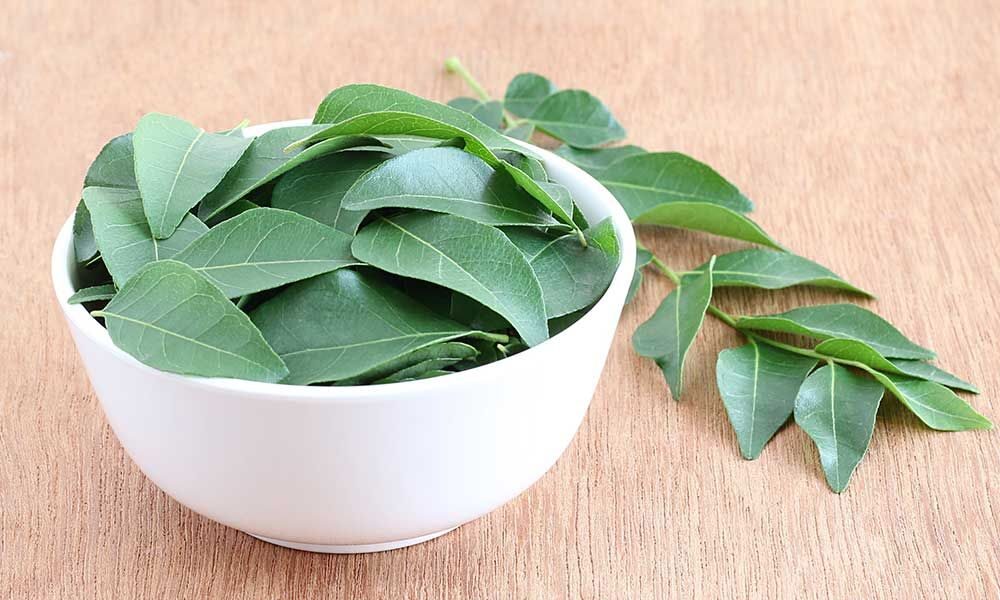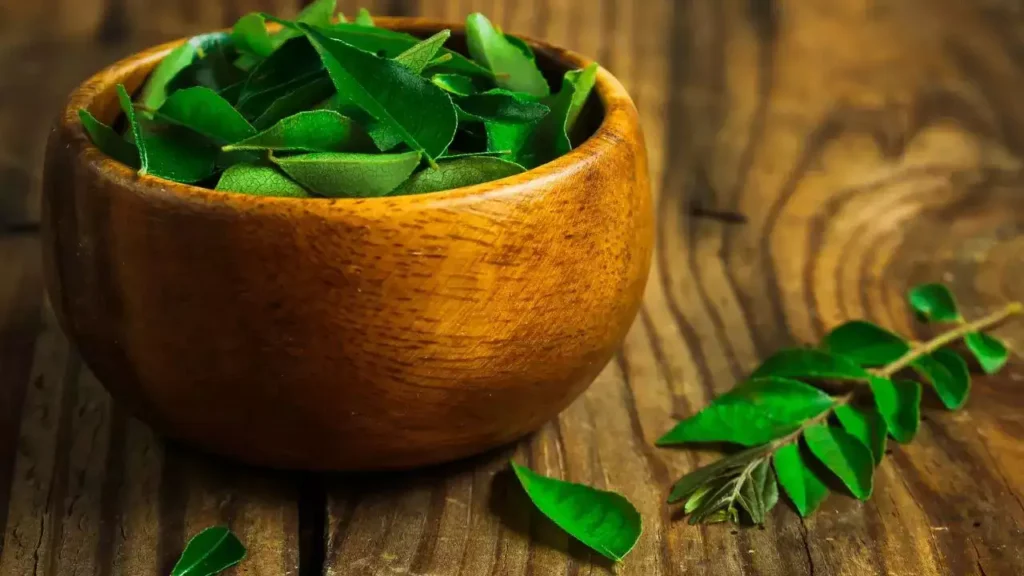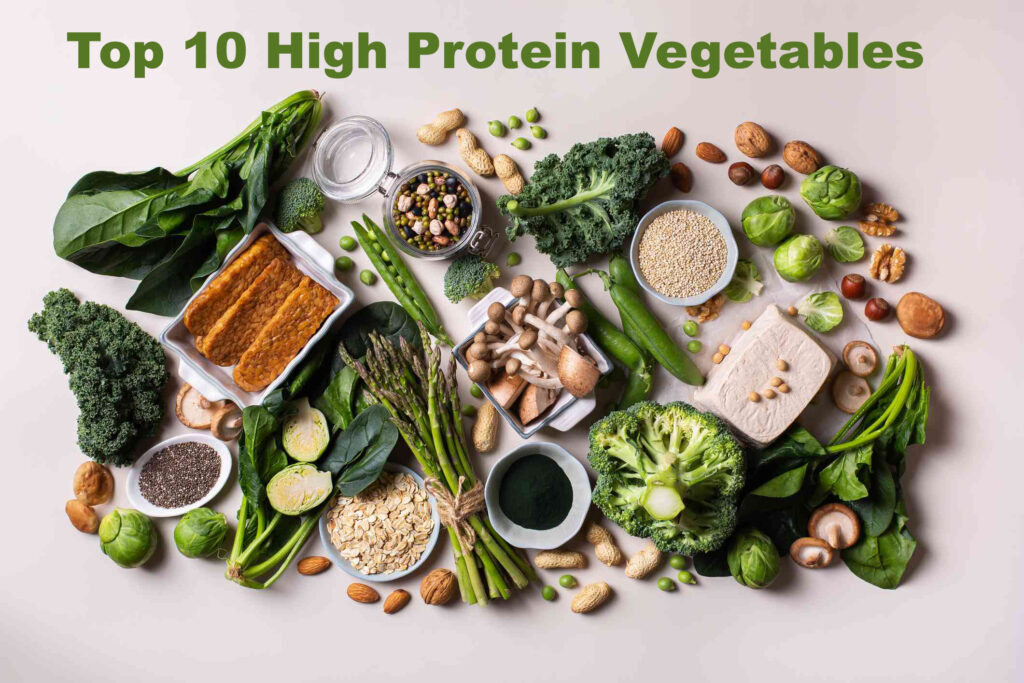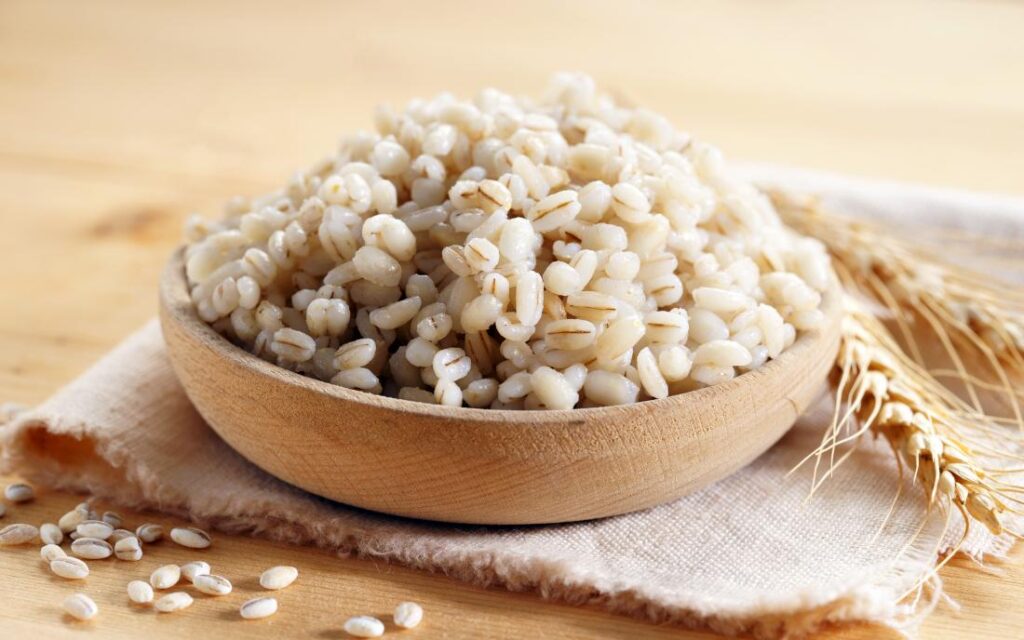Curry leaves, also known as Murraya koenigii, are a staple ingredient in Indian cooking. Beyond their ability to enhance the flavor of dishes, these aromatic leaves are a powerhouse of nutrients with a wide range of health benefits.
Nutritional Composition
Curry leaves are rich in essential nutrients that support overall health:
- Vitamins: Vitamin A, Vitamin B6, Vitamin C, and Vitamin E
- Minerals: Calcium, Phosphorus, Iron, Magnesium, Potassium, and Zinc
- Antioxidants: Alkaloids, flavonoids, and phenolic compounds
- Dietary Fiber: Improves digestion and supports gut health
- Essential Oils: Contain terpenes and cinnamaldehyde with medicinal properties
A 100g serving of fresh curry leaves provides approximately:
- Energy: 108 kcal
- Carbohydrates: 18.7g
- Protein: 6.1g
- Fiber: 4.4g
- Fat: 1.1g
- Calcium: 830mg
- Iron: 0.93mg

Health Benefits
1. Improves Digestion
Curry leaves are rich in fiber, which aids in digestion and prevents constipation. The leaves stimulate digestive enzymes, reducing bloating, indigestion, and acidity.
2. Combats Anemia
The high iron content in curry leaves, combined with folic acid, helps prevent anemia by supporting the production and absorption of hemoglobin.
3. Regulates Blood Sugar
Curry leaves improve insulin sensitivity and reduce blood glucose levels, making them beneficial for managing diabetes. They also prevent oxidative stress in pancreatic cells.
4. Enhances Hair Health
Curry leaves are known for their ability to strengthen hair follicles, reduce hair fall, and combat premature greying. Applying curry leaf-infused oil or including them in your diet promotes shiny, healthy hair.
5. Boosts Immunity
Rich in antioxidants and vitamin C, curry leaves enhance the body’s natural defense mechanisms and protect against infections.
6. Protects Liver Function
Curry leaves act as a natural detoxifier, protecting the liver from oxidative stress and damage caused by toxins. They support liver enzyme activity and promote better metabolism.
7. Improves Eye Health
Vitamin A in curry leaves supports good vision and prevents conditions like cataracts, night blindness, and dry eyes.
8. Aids in Weight Management
Curry leaves help reduce cholesterol levels and improve metabolism. Their ability to flush out toxins also aids in weight loss.
9. Anti-Inflammatory Properties
The phenolic compounds in curry leaves help reduce inflammation in the body, making them beneficial for conditions like arthritis.
10. Supports Heart Health
Curry leaves lower LDL (bad cholesterol) and triglycerides while increasing HDL (good cholesterol), reducing the risk of heart diseases.

Culinary and Medicinal Uses
- Cooking: Add fresh or dried curry leaves to curries, soups, and chutneys to enhance flavor.
- Hair Care: Boil curry leaves in coconut oil and apply the mixture to the scalp to nourish hair.
- Tea: Brew curry leaves in hot water with honey and lemon for a detoxifying drink.
- Powder: Dried curry leaves can be ground into a fine powder and used as a seasoning.
How to Include Curry Leaves in Your Diet
- Raw Consumption: Chewing 8-10 fresh curry leaves daily can maximize health benefits.
- Juice: Blend curry leaves with water, ginger, and a pinch of salt for a refreshing drink.
- Smoothies: Add fresh curry leaves to green smoothies for an extra nutritional boost.
- Curry Leaf Chutney: Blend curry leaves with coconut, green chilies, and tamarind for a delicious side dish.
Precautions
While curry leaves are generally safe for consumption, excessive intake may lead to stomach discomfort. Pregnant or breastfeeding women should consult a healthcare provider before making significant dietary changes.
Conclusion
Curry leaves are a treasure trove of nutrients and health benefits. Regular consumption can improve digestion, manage diabetes, and support overall well-being. Adding these versatile leaves to your daily diet is a simple way to harness their incredible medicinal properties.





